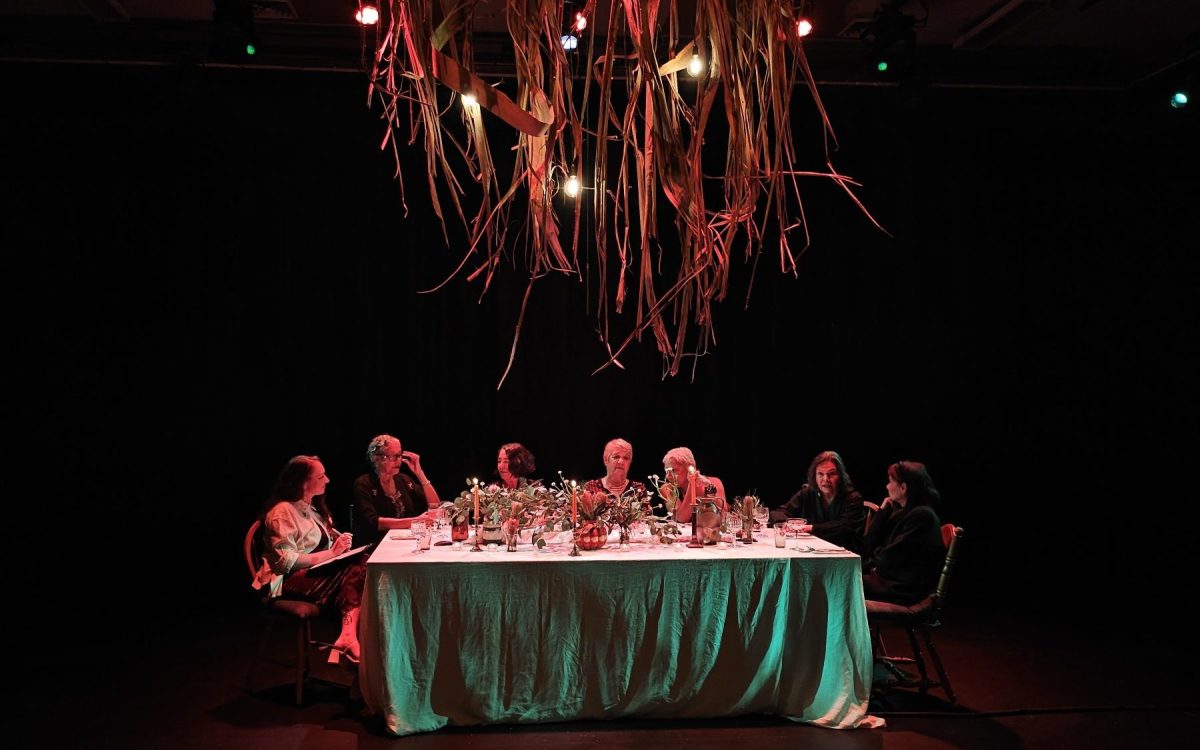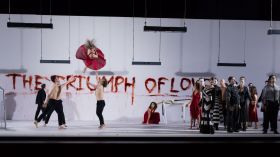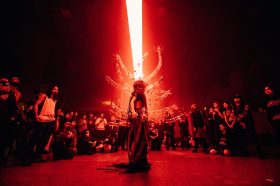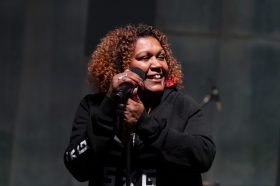Table for 6 was not a performance per se – with no scripts or rehearsals, the event was closer to a talk show at the dinner table, with six prominent First Nations women recalling the ups and downs of their careers. It was intimate, candid, powerful and offered insights into a revolution in the making.
The generosity and humour that came from Kylie Belling, Lily Shearer, Dr Lynette Narkle, Margo Kane, Rachael Maza and Rhoda Roberts had the audience holding onto every word, soaking in their knowledge and wisdom.
Among these women were co-founders of ILBIJERRI Theatre Company, Moogahlin Performing Arts Inc, Full Circle: First Nations Performance, the Dreaming Festivals (1995-2009) and the Aboriginal National Theatre Trust.
They are actors, writers, producers, community workers, TV presenters, curators, PhD candidates, but also aunties, sisters, daughters, mothers, great-grandmothers… They do so much, just to ensure that First Nations people are being represented on stage and screen, and that their stories continue to be told with authenticity and self-determination.
Even as the first Aboriginal to graduate from the VCA School of Drama in 1985, Belling recounted being shut out from dream roles just because of who she is (or because the role went to the director’s wife), and many of the women could relate.
When it comes to opportunities for First Nations people, they mostly had to be self-made. Radiance (1998), directed by Rachel Perkins and starring Maza as one of the three sisters, was written during conversations at the dinner table, much like this one.
Kane, a Cree-Saulteaux actor and art director, first travelled from Canada to Australia for the Dreaming Festival at the invitation of Roberts. Here, she saw First Nations performances occupy every venue around the Sydney Opera House, and was inspired to start the Talking Stick Festival in Vancouver, now in its 18th year.
The conversations were heart-warmingly organic, with a light touch from host of the evening, Emily Wells. The way the lives of these women have crossed paths is worthy of several more dinners beyond this one-night event. Together, they are living archives of how First Nations theatre and screen arts have grown and challenged discrimination throughout the decades. It’s surely documentary-worthy material.
As the women reflected on what’s next, many of them expressed the desire to step away from admin and fully embrace their identity as artists. The responsibility of advocacy sometimes means dedicating more time to laying the groundwork rather than the creative side but, as Shearer pointed out, it’s the non-Indigenous folks who should be educating themselves on things like cultural sensitivity.
Read: Exhibition review: Karla Dickens, Rise and Fall, Wollongong Art Gallery
Even for an arts worker with a POC background, their stories resonated. Just as Maza concluded on the evening, it’s up to the next generation to continue the story, but we must never forget who came before – we’re standing on the shoulders of giants.
Table for 6 was held at The Show Room, Arts Centre Melbourne on 6 May as part of Yirramboi Festival. Check out more program highlights.





